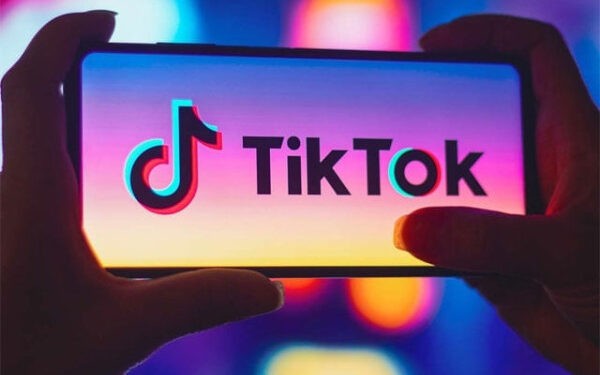Washington, D.C. — U.S. President Donald Trump has granted the popular Chinese-owned video-sharing app TikTok an additional 90-day extension to continue operations in the United States. The new deadline pushes the enforcement date to September 17, 2025, offering the company more time to comply with U.S. national security demands, which require the platform to transfer ownership to a non-Chinese entity.
Executive Order Signed to Extend TikTok’s Operational Window
On Thursday, President Trump announced via his social media platform Truth Social (formerly Twitter) that he had signed a new executive order to delay the forced sale or potential ban of TikTok for another 90 days.
“I have just signed an executive order, under which the deadline for the closure of TikTok has been extended by 90 days (i.e. September 17, 2025),” Trump posted.
This is the third time that President Trump has intervened to postpone TikTok’s shutdown, which was initially scheduled following a congressional bill passed in 2024 that cited national security concerns over Chinese access to American users’ data.
Background: Why TikTok Faces a Potential Ban in the U.S.
Concerns over TikTok’s Chinese ownership have long troubled U.S. lawmakers and intelligence agencies. Owned by ByteDance, a Beijing-based tech company, TikTok has been accused by U.S. officials of potentially transferring user data to the Chinese government, a claim both TikTok and ByteDance have repeatedly denied.
In 2024, the U.S. Congress passed legislation mandating that TikTok’s U.S. operations be sold to an American entity, citing the platform as a threat to national security. The law required TikTok to divest its U.S. assets by January 19, 2025, or face a nationwide ban.
However, implementing this directive has proven complex, and negotiations involving multiple potential buyers have stalled, prompting multiple deadline extensions.
Trump’s Relationship with TikTok: A Nuanced Perspective
While the Trump administration has maintained a tough stance on Chinese technology, President Trump has been relatively flexible on the matter of TikTok specifically.
Despite previously supporting legislation to regulate Chinese tech firms, Trump acknowledged in an interview with NBC News in May 2025 that TikTok played a positive role in his 2024 re-election campaign, especially in engaging younger voters.
“TikTok helped me reach the youth,” Trump said. “I like TikTok. If it needs more time, I’m willing to give it.”
This acknowledgment of TikTok’s utility as a campaign tool may partly explain the administration’s more lenient extensions, despite broader calls within the Republican Party to clamp down on Chinese digital influence in the U.S.
TikTok Responds Positively to Trump’s Decision
In response to the 90-day extension, TikTok issued a public statement thanking President Trump for his “leadership and support.”
“We are grateful for President Trump’s leadership, which has ensured that TikTok remains available to more than 170 million U.S. users,” the company stated.
TikTok added that it is committed to complying with U.S. laws and continues to engage in negotiations to find a “constructive path forward” that satisfies both American lawmakers and the company’s strategic goals.
Previous Attempts to Resolve the Ownership Dispute
Efforts to resolve the ownership issue have included interest from major U.S. firms such as Oracle, Microsoft, and a consortium led by Walmart. However, negotiations have consistently broken down over concerns related to:
- Data privacy and control
- Intellectual property rights
- Chinese government intervention
- Algorithm transfer restrictions
In March 2025, it was reported that ByteDance had submitted a proposal to establish a U.S.-based subsidiary with full operational independence and data hosting within U.S. servers. However, this proposal was rejected by U.S. lawmakers, who insisted on a complete divestiture of Chinese ownership.
National Security Concerns and Legislative Actions
The pressure on TikTok stems largely from bipartisan concerns in Washington that Chinese technology firms may act as arms of the Chinese Communist Party (CCP). According to U.S. intelligence briefings, there is a risk that Chinese law could compel companies like ByteDance to hand over user data for surveillance or propaganda purposes.
The FBI and the Department of Justice have previously testified before Congress, highlighting TikTok’s data collection capabilities, including its access to users’ locations, browsing history, keystroke patterns, and more.
These testimonies helped build momentum behind the Protecting Americans from Foreign Adversary Controlled Applications Act, which forms the basis for the legal threat to TikTok’s operations in the U.S.
Implications for TikTok’s Business and U.S. Tech Industry
TikTok’s uncertain future has implications far beyond just social media. The platform is a major economic ecosystem that supports:
- Creators and influencers who earn through sponsorships and brand partnerships
- Small businesses that use the app for digital marketing and outreach
- U.S. tech startups that rely on advertising and integrations with TikTok
Experts warn that a forced sale or ban could trigger legal challenges, impact the broader U.S.-China tech relationship, and influence how global platforms are treated in other countries.
What Happens After the 90-Day Extension?
The new deadline gives TikTok and the U.S. government time to resume negotiations with potential buyers or reach a regulatory agreement. However, if TikTok fails to comply by September 17, 2025, President Trump has indicated he will proceed with the ban order, which may involve:
- Removal from app stores (Apple & Google)
- Blocking access to TikTok’s servers
- Fines or criminal action against ByteDance and its U.S. operations
Legal experts predict that TikTok could challenge the ban in federal court, citing First Amendment violations and due process concerns.
Global Reactions and the Future of Chinese Apps in the West
TikTok’s ongoing struggle in the U.S. mirrors a broader global backlash against Chinese technology. Countries such as India, Australia, and Canada have either banned or imposed restrictions on TikTok over national security concerns.
The app has been banned in India since 2020, and other nations are reviewing data sovereignty laws to regulate apps with foreign ownership.
This development may set a precedent for how Western democracies treat Chinese tech companies, especially in the era of AI, surveillance, and digital infrastructure dominance.
Conclusion: A Complex Crossroads for Tech, Politics, and Privacy
The 90-day extension granted to TikTok underscores the complex intersection of technology, politics, and national security. While the app continues to thrive in the U.S. market with 170+ million users, its fate remains uncertain.
As President Trump navigates the fine line between data protection and digital freedom, and TikTok scrambles to find an American buyer or partner, the coming months will be pivotal in determining whether the app remains available to millions of Americans—or becomes a casualty of growing U.S.-China digital tension.

























